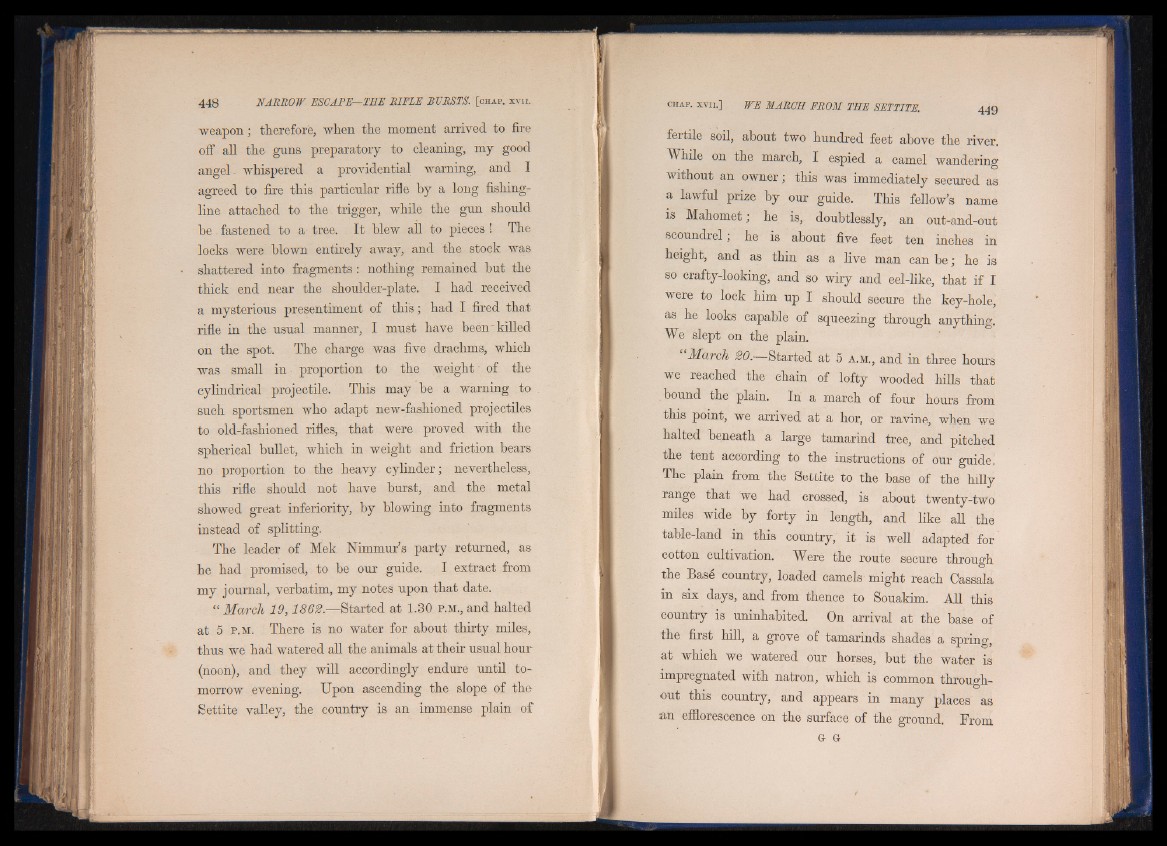
weapon; therefore, when the moment arrived to fire
off all the guns preparatory to cleaning, my good
angel - whispered a providential warning, and I
agreed to fire this particular rifle by a long fishing-
line attached to the trigger, while the gun should
be fastened to a tree. It blew ail to pieces ! The
locks were blown entirely away, and the stock was
shattered into fragments: nothing remained but the
thick end near the shoulder-plate. I had received
a mysterious presentiment of this; had I fired that
rifle in the usual manner, I must have been'killed
on the spot. The charge was five drachms, which
was small in proportion to the weight of the
cylindrical projectile. This may be a warning to
such sportsmen who adapt new-fashioned projectiles
to old-fashioned rifles, that were proved with the
spherical bullet, which in weight and friction bears
no proportion to the heavy cylinder; nevertheless,
this rifle should not have burst, and the metal
showed great inferiority, by blowing into fragments
instead of splitting.
The leader of Mek Nimmur’s party returned, as
he had promised, to be our guide. I extract from
my journal, verbatim, my notes upon that date.
“ March 19,1862.—Started at 1.30 p.m., and halted
at 5 p.m. There is no water for about thirty miles,
thus we had watered all the animals at their usual hour
(noon), and they will accordingly endure until tomorrow
evening. Upon ascending the slope of the
Settite valley, the country is an immense plain of
fertile soil, about two hundred feet above the river.
While on the march, I espied a camel wandering
without an owner; this was immediately secured as
a lawful prize by our guide. This fellow’s name
is Mahomet; he is, doubtlessly, an out-and-out
scoundrel, he is about five feet ten inches in
height, and as thin as a live man can be; he is
so crafty-looking, and so wiry and eel-like, that if I
were to lock him up I should secure the key-hole,
as he looks capable of squeezing through anything.
We slept on the plain.
March 20. Started at 5 A.M., and in three hours
we reached the chain of lofty wooded Tn'Hs that
bound the plain. In a march of four hours from
this point, we arrived at a hor, or ravine, when we
halted beneath a large tamarind tree, and pitched
the tent according to the instructions of our guide,
The plain from the Settite to the base of the hilly
range that we had crossed, is about twenty-two
miles wide by forty in length, and like all the
table-land in this country, it is well adapted for
cotton cultivation. W^ere the route secure through
the Base country, loaded camels might reach Cassala
in six days, and from thence to Souakim. All this
country is uninhabited. On arrival at the base of
the first hill, a grove of tamarinds shades a spring,
at which we watered our horses, but the water is
impregnated with natron, which is common throughout
this country, and appears in many places as
an efflorescence on the surface of the ground. From
G G